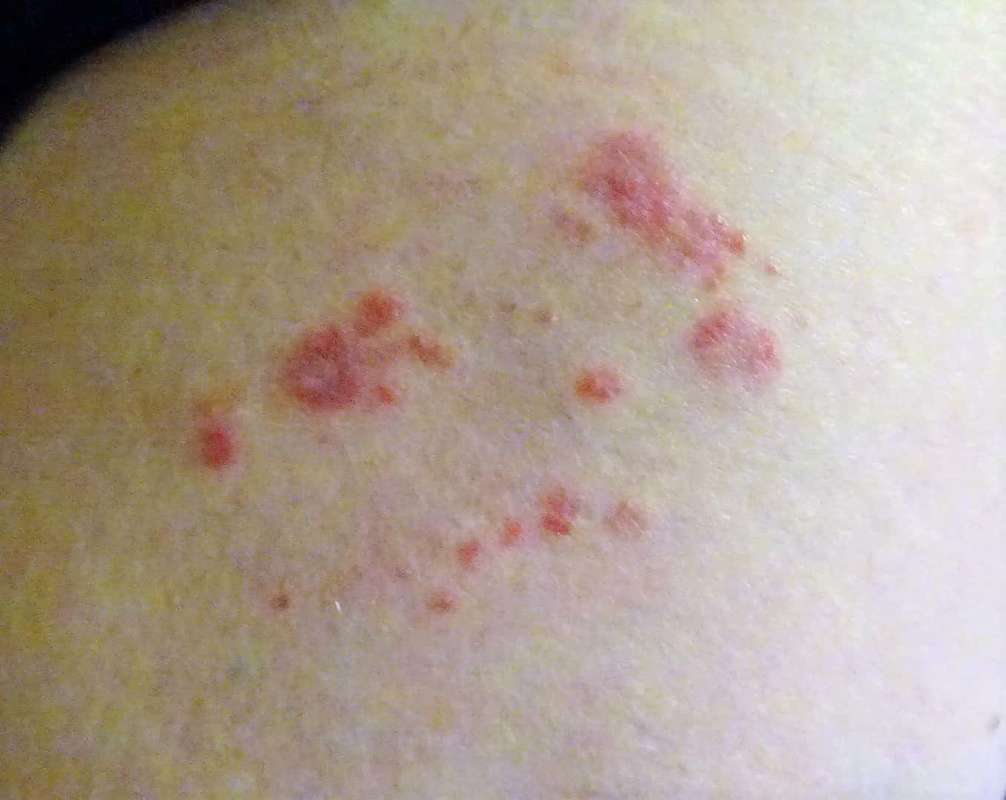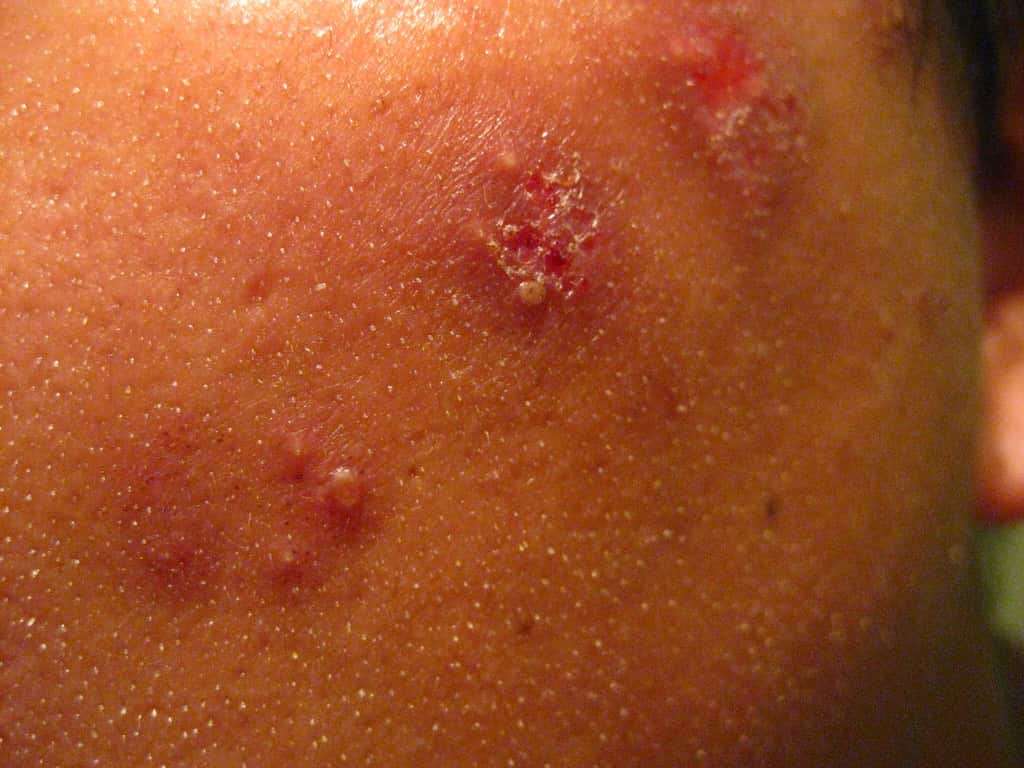I came to E7 health for a physical exam for employment. Staff was very professional, And I was in and out in thirty minutes
Read More
Everything You Need to Know About Shingles (and How to Avoid It)
Posted: May 25th, 2019 at 12:00AM

If you've had the chickenpox in the past, you run the risk of shingles. Fortunately, for the first time in 10 years, a more effective shingles vaccine has been approved by the US Food and Drug Administration (FDA) to help boost your body's immunity against the virus. What is shingles and why is it important to get the shingles vaccine? We're discussing these matters and more in this blog.
What is Shingles?
Shingles is typically characterized by a severely painful skin rash on one side of the body, head, or face that lasts for about two to four weeks. Though usually not life-threatening, it can cause many unpleasant symptoms and/or complications. Shingles also causes a common symptom called neuritis. Neuritis is a painful inflammation of the nerves. The pain is also described as "burning" or "throbbing." This pain can be severe and often begin before the rash begins, during and sometimes at least 30 days after. Even after the outbreak clears up, it may leave scars due to scratches and blisters.
The disease is caused by the varicella-zoster virus — the same virus that causes chickenpox Ø™— and is classified under the herpes viruses group. Just to clarify, while this pathogen is categorized under the herpes viruses group, the varicella-zoster is not the same as genital herpes.
The Signs and Symptoms of Shingles
Oftentimes, shingles will only affect a small part of the body. The skin of the affected area will show red patches with small bumps, which eventually turn into blisters. Before the rashes show up, the person affected might exhibit exhaustion or fever.
Other signs and symptoms include:
- Burning sensation
- Tingling under the skin
- Red rashes
- Pain on the affected area
- Fluid-filled blisters
- Itching
- Headache
Complications
Shingles shouldn't be taken for granted. If not properly managed, it can lead to a number of health complications that may interfere with one's daily life. Here are some of the possible issues.
Postherpetic Neuralgia
PHN is a condition where the patient still feels an itch or severe pain in the area where the shingles rash had been. Caused by the damaged nerves that send abnormal signals to the brain, this disorder can go on for months or even years after they've recovered from the ailment.
Vision Loss
When the outbreak occurs near the eye area, you should immediately seek your doctor's help. If left untreated, shingles may lead to eye damage or vision loss.
Hearing Problems
If the rash affects the facial nerves located near the ears, hearing problems may occur.
Pneumonia
Pneumonia can happen if the outbreak spreads to the lungs.
Hepatitis
Another major complication caused by untreated shingles is hepatitis. This often happens if the disease spreads to the liver.
Brain Inflammation
Depending on the severity, the infection may damage nerves and lead to brain inflammation, also known as encephalitis. In some cases, it can also cause facial paralysis.

Chickenpox vs. Shingles
Despite the fact that the two are brought about by the same virus, shingles is different from chickenpox.
The initial varicella-zoster virus infection causes chickenpox. Although it may seem like the virus completely disappears once the infection is treated, the fact is that it still remains inside the body long after recovery.
The virus stays in your nervous system, often lying dormant for years with no side effects. But once it reactivates, it will travel along your nerve pathways, reach your skin, and produce the illness that we now refer to as shingles or herpes zoster.
It's estimated that two out of 10 people who have contracted chickenpox will develop shingles later in life. About half of all adults who live to 85 will have shingles. As of now, experts are still uncertain of the reason for the virus's reactivation.
This infection is particularly common among older adults ages 50 years and above, so most suspect that it's due to a weakened immune system triggered by the effects of aging.
Other risk factors include:
- Immunocompromising conditions or immunosuppressive medications
- Organ transplant recipients
- HIV infection
People who haven't had chickenpox before may still be affected by shingles if they come into contact with the fluid inside the blisters. This, however, will cause them to get chickenpox, not shingles — because shingles cannot be passed from one person to another.
The Shingles Vaccine
Prevention is always better than cure. Thus, getting the shingles vaccine is highly recommended to protect your body from the illness and to reduce the chances of complications.
There are two vaccines that may help prevent shingles: the varicella vaccine, also known as the chickenpox vaccine, and the shingles vaccine.
Varicella Vaccine
Shingles stems from chickenpox, so one way of preventing its occurrence is to take measures against chickenpox.
The varicella vaccine is ideal for children and adults who have never had chickenpox before. It's a two-dose vaccine that should be taken four weeks apart for people ages 13 years and above.
For young children, the first dose should be taken when the child is between 12 and 15 months old. The second shot can be administered when the child is between the ages of four to six.
The chickenpox vaccine was only added to the childhood immunization schedule in 1995. Thus, a lot of the people born before that year — especially those from the older generation — weren't given protection against the illness. As a result, more than 99% of Americans ages 40 and up have had chickenpox.
People who are 50 years or older — whether they remember having chickenpox or not — should get the shingles vaccine to help boost their immune system and protect their body against the infection.
The shingles vaccine, like the varicella vaccine, is a two-dose shot. A follow-up shot is required two to six months after the first, to ensure optimum protection.
This inactivated (killed) vaccine for shingles is highly effective. It's estimated to be more than 90% effective at preventing shingles and post-herpetic neuralgia.
The shingles vaccine is FDA-approved and is confirmed as an effective way to prevent shingles. One more point we'd like to emphasize is that the shingles vaccine is designed as a means of prevention. It's not intended for treatment. People who are currently affected by the disease should immediately talk to a healthcare professional to determine the best course of action.
If you;re ready to take action, contact e7 Health today and find out how you can get the shingles and varicella vaccines.

Staff was extremely friendly, I was able to walk in without an appointment.
Read More
Very friendly, informative, and well versed. Felt well taken care of by the doctor and all the staff. Fast, friendly, considerate, all staff met.
Read More
I was here for an employment physical. They are amazing! I was in and out in less than 10 mins.
Read More
J was super helpful. Very quick and easy.
Read More
Rachel was amazing and I was in and out so quick ! Ready to start my new job ! Thanks 🥰
Read More
J was awesome at talking me through my first time getting blood taken. The doctor that also did my physical was quick and very thorough when letting me know the next steps for getting the test results back :)
Read More
Quick n staff very nice
Read More
















